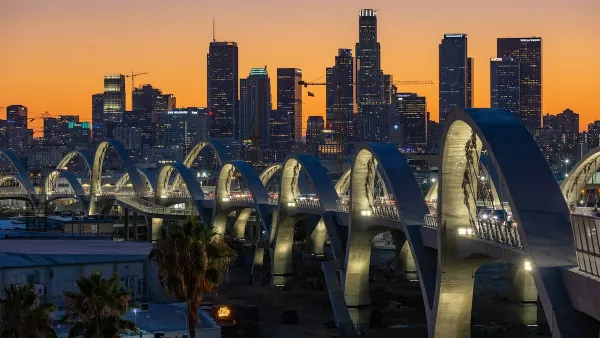I’m not basing this quick observation on any specific historical research or book, so bear with me. Cities grow and shrink; in effect they change rapidly (although sometimes it doesn’t seem rapidly enough and at other times all too rapidly). Where we operate in that continuum I think shapes much of how we see our role as professionals. Planning to address either shrinking cities or growing ones can seem, at times, like totally different professions. A colleague of mine remarked that planning for shrinking cities is definitely a niche market. With so much discussion surrounding growth and how we grow, there is much less dialog that defines the opposite.
I'm not basing this quick observation on any specific historical research or book, so bear with me. Cities grow and shrink; in effect they change rapidly (although sometimes it doesn't seem rapidly enough and at other times all too rapidly). Where we operate in that continuum I think shapes much of how we see our role as professionals. Planning to address either shrinking cities or growing ones can seem, at times, like totally different professions. A colleague of mine remarked that planning for shrinking cities is definitely a niche market. With so much discussion surrounding growth and how we grow, there is much less dialog that defines the opposite.
This is certainly changing. The "shrinking cities" movement has resulted in a number of beautifully illustrated books that bring together artists, planners and designers to float ideas for managing decline. While esoteric, the creativity is a wonderful step forward in this dialog. Combine this with the recently touted Youngstown 2010 plan, and shrinkage, at least as it's discussed in the media, is making a comeback.
Urban shrinkage, of course, has always been with us. Almost every city or region has examples of population loss and rising vacancies that frustrate even the most optimistic of planners. I've had the recent opportunity to work in a city recently defined by shrinkage – Rochester, NY. Two critical issues emerged from that work and merit discussion. First, any statement (including the one above) regarding Rochester's shrinkage is too general. There are neighborhoods in that City that are in fact growing. The problem of course is that other neighborhoods are impacted by residents leaving for the suburbs – a process of shrinkage through regional redistribution.
Second, where Rochester is in the process of shrinking, matters a lot. All cities have faced periods of decline before re-discovering themselves. I remember when I lived in Paris ages ago that even portions of that City had experienced what we would call shrinkage. Despite the recent Forbes article that outlined the potential for a network of "Ghost Cities" in the year 2100, the overwhelming majority of cities are resilient and will rebound in unexpected ways.
Rochester has yet to face the loss that Youngstown or some other mid-west and rust-belt cities have. Thus, a wholesale acceptance of Rochester as a smaller City is less tenable. The result from a professional standpoint is to plan for growth, but growth with a realistic eye toward the short-term management of decline. "Smart Decline" as it has been dubbed, is from our perspective, a process of managing the expectations of people about the short-term future of their city. Its about finding hope and optimism in even the most negatively impacted of declining communities. Above all, smart decline must identify strategies that are both creative and meaningful and can be undertaken with or without private investment.
Always "take the long view" and plan for growth, but what you plan for the "short view" is almost more important.

Analysis: Cybertruck Fatality Rate Far Exceeds That of Ford Pinto
The Tesla Cybertruck was recalled seven times last year.

National Parks Layoffs Will Cause Communities to Lose Billions
Thousands of essential park workers were laid off this week, just before the busy spring break season.

Retro-silient?: America’s First “Eco-burb,” The Woodlands Turns 50
A master-planned community north of Houston offers lessons on green infrastructure and resilient design, but falls short of its founder’s lofty affordability and walkability goals.

Test News Post 1
This is a summary

Analysis: Cybertruck Fatality Rate Far Exceeds That of Ford Pinto
The Tesla Cybertruck was recalled seven times last year.

Test News Headline 46
Test for the image on the front page.
Urban Design for Planners 1: Software Tools
This six-course series explores essential urban design concepts using open source software and equips planners with the tools they need to participate fully in the urban design process.
Planning for Universal Design
Learn the tools for implementing Universal Design in planning regulations.
EMC Planning Group, Inc.
Planetizen
Planetizen
Mpact (formerly Rail~Volution)
Great Falls Development Authority, Inc.
HUDs Office of Policy Development and Research
NYU Wagner Graduate School of Public Service



























